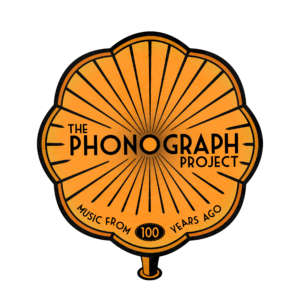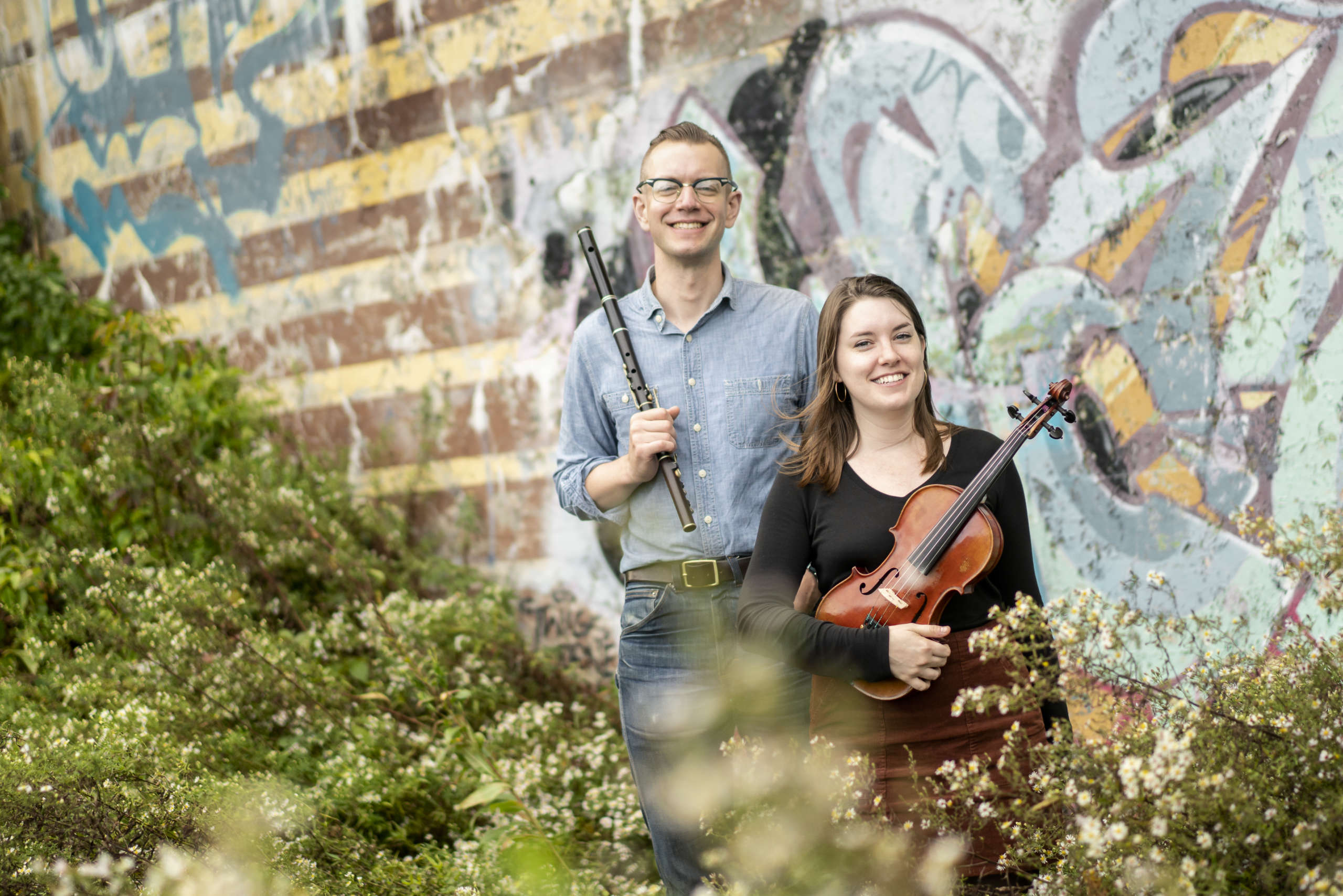 You might call Philly-native fiddler Caitlin Finley and uilleann piper/flutist Will Woodson a little old-fashioned.
You might call Philly-native fiddler Caitlin Finley and uilleann piper/flutist Will Woodson a little old-fashioned.
Well, maybe a lot old-fashioned.
Now residing in Portland, Maine, the traditional Irish music duo has a deep affection for the tunes of Irish traditional music pioneers—from a century ago—and they want to share their fondness with other Irish musicians.
It’s called the Phonograph Project, an effort to dissect the playing of musicians such as famed fiddlers Michael Coleman, John McKenna and James Morrison. Much of their music was released on 78 RPM albums for the first time in the 1920s—and it is highly distinctive, dating back to when they themselves learned the tunes decades before in Ireland.
Finley, a medical physics assistant in radiation oncology at Massachusetts General Hospital in Boston, is—like so many of us—now working remotely.
She and Woodson first got to know each other when both were living in New York City and playing in local pubs. “We really enjoyed playing music together and then lost touch for a couple of years,” says Finley. “Will, in the meantime, had moved up to Portland and I had moved up to Boston, and then we just wound up reconnecting through the music scene and started playing a bunch of music together again.”
Finley, for one, first became interested in the old recordings when she took lessons from the famed Brian Conway in New York. She was about 15 at the time. Conway and his sister Rose introduced her to a lot of the old tunes. “At that point,” she says, “I was pretty much hooked.”
So what was there about the old-style playing that drew her in?
First, she explains, was just the sheer talent of those giants of the tradition, along with the impressive ornamentation and creativity. “And then a lot of what has always attracted me was actually the drive behind their playing,” Finley says. “Morrison in particular has always been my favorite fiddler of that era. That drive and energy are really unique, and there’s a bounce to it that is really unique to players of that era. It’s like very energetic dance music.”
The Phonograph Project is Finley’s and Woodson’s homage to that music—and to the playing of other musicians like flutist John McKenna and pipers Michael Gallagher and Michael Carney. But it’s really something much more. The project represents their effort to take a deep dive into those tunes and share with other musicians the intricacies of the old-style playing—thus serving as a link to the old masters. They present their interpretations of the music through videos and detailed tutorials. The project is available for nominal fees to musicians through the membership platform Patreon.
It’s quite an ambitious undertaking. Finley and Woodson spend hours learning the ins and outs of every tune. They also transcribe into easily accessible sheet music what they’ve learned. They rehearse the tunes together, they edit and record videos, and they spend a long time writing up their findings.
“We’re transcribing the tunes into writing for all three instruments—fiddle, flute and pipes—so that people can actually see what notes we’re playing, and we try to be as detailed as possible, such as where I’m slurring and some examples of my ornamentation,” Finley says. “And then we’re recording individual audio tracks separately, slowed down, so people can hear better what we’re doing. Each month, we’re writing up different aspects of how we learned about different pieces of technique that we think are interesting and maybe helpful for people to learn. And then we also include a bit of historical context. Right now, we have a couple of historian subscribers who are much more interested in that aspect than the tutorial aspect. We’re trying to include a little bit of everything for everyone.”
Some of the tunes will be familiar to session players, but the major difference is learning how the old-timers played them. For example, they recently produced a recording of the jig, “Cherish the Ladies,” which they learned from the playing of piper Tom Ennis. Last month, they posted James Morrison’s version of the reels, “The Pigeon on the Gate” and “Miss Monaghan.”
For a project now so impressive, it had modest roots.
Last spring, the duo produced an album called “The Glory Reel.” Much of the music on that album is in the vein of the tunes featured in the Phonograph Project. Still, at that point, they weren’t truly focused on anything like the current undertaking. They first began learning the old tunes to satisfy their own curiosity and to one day—perhaps—get to the point where they could release them to the web.
Ultimately, the pandemic provided the final impetus to get going in earnest.
“I was visiting Will in Portland right before the pandemic hit and I fell on ice and sprained my ankle really badly,” Finley recalls. “I was out of work for a bit. And then the pandemic hit. We just had so much time in those few weeks where we were talking about this and playing the music together, and it all came together really quickly. And another aspect is that we had a bunch of small tours lined up for the spring and they all got canceled. So we kind of went all in on this and spent a lot of time talking about it and coming up with it.”
As with so many other Irish musicians these days, they’ve had to come up with ways to offset lost income, and the project on Patreon enables them to collect modest fees in exchange for all their work. Working from home during this challenging time provided an opportunity.
“It’s certainly given us more time for this,” Finley says. “It’s not as if we have gigs to go out and play or friends to go see, so yeah—we’ve got nothing but time on our hands these days.”
Photo, above, by Anna Colliton.

